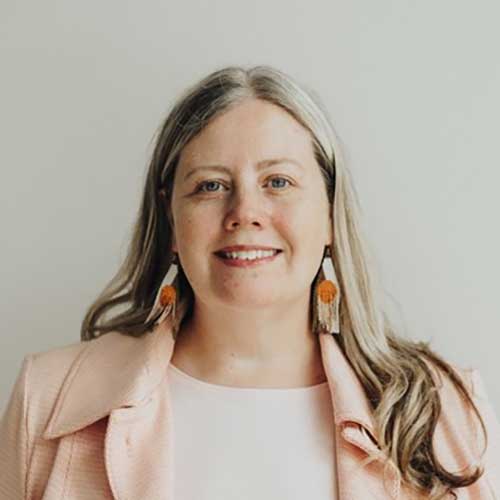
- Cet évènement est passé.
I’m Fine. It’s Fine. Everything is Fine… Except it’s Not. Trauma-Informed Leadership
4 avril 2023 @ 1:00 pm - 3:30 pm EDT
Coût : Membres : $175 | Non-membres : $275 Inscrivez-vousOVERVIEW
“All Canadians avoid non-essential travel outside the country until further notice. Canadian travellers return to Canada via commercial means while they remain available.” Prime Minister Trudeau, March 16, 2020
For many of us working in international education at the time, we were dealing with the effects of the COVID-19 pandemic for weeks or even months before this announcement by the Prime Minister. We were used to managing international risks – but this virus was different from anything anyone had experienced. Even the best-laid emergency plans did not account for a global grounding of the air industry or directives not to leave home. Comforting international students who were worried about loved ones back home, navigating ever-closing pathways for students to fly home, working with risk management departments, participating on ad hoc institutional response teams and managing our own safety and families’ safety at the beginning of the pandemic shook all of our personal and professional foundations.
Nearly three years later, we have moved from a ‘response’ to a ‘recovery’ phase of this emergency and adjusted and adapted in ways we never dreamed possible prior to the pandemic. Virtual classrooms, virtual international internships and study abroad, virtual webinars, and rapid changes and flexibility to study permits changed us – and our industry. This past September marked the first time many schools, universities and colleges went back to a ‘normal’ in-person semester. Yet, things are not ‘normal’ and are not the same as they were. People are more tired, more scared, more vigilant, more short-tempered, more anxious, more explosive, more emotional, more withdrawn than before – and sometimes all in the same day. These are all trauma responses.
Trauma is a lasting emotional response that often results from living through a distressing event. Experiencing a traumatic event can harm a person’s sense of safety, sense of self, and ability to regulate emotions and navigate relationships. Long after the traumatic event occurs, people with trauma can often feel shame, helplessness, powerlessness and intense fear. (CAMH)
How can leaders in international education better understand how trauma affects their workplace and themselves? What strategies can leaders incorporate for greater self-regulation? How can leaders hold space for others who have experienced trauma – from the teams they lead to their co-workers, larger institutions, students and partners? This interactive webinar will take a deeper dive into this topic and also bring together people to share their own discoveries and best practices on their awareness and healing journeys. The workshop is expertly tailored and choreographed to efficiently and effectively create psychological safety and trust amongst participants and to energize and inspire rather than drain. This is not a passive learning webinar where people turn off their cameras and tune in while they are checking and responding to their emails. This is a community-building event that also opens minds and hearts. We do this through guided personal reflection, small group work, and large group debriefs.
LEARNING OBJECTIVES
- Develop an understanding of how trauma can show up in the international education environment.
- Define the Window of Tolerance and articulate its impact on themselves and their workplace.
- Identify and use strategies for self-awareness and self-regulation.
- Begin to identify how to hold space for others who have experienced trauma.
AUDIENCE
This online workshop is meant for supervisors, managers, mentors, employees and/or volunteers in international education. They will gain a deeper understanding of how trauma can show up in the international education environment and how to effectively lead with greater compassion and empathy for themselves and their teams.
TRAINING SCHEDULE & DELIVERY
This virtual workshop is a stand-alone session, with the view of launching an extended leadership webinar cohort in the Fall of 2023. This is a live, interactive online workshop. Please note that the session on April 4th will NOT be recorded, and thus attendance at this live session is required.
Participants will log onto Zoom and should have access to a desktop, laptop or tablet and be stationary for the duration of the event. There will be small group breakout sessions and large group debriefings, and the session will be interactive. A certificate of participation from MT Consulting will be awarded to all who attend.
No pre/during/post training readings, assignments or assessments are required.
| Welcome and introduction | 1:00 pm – 1:05 pm |
|
How is trauma showing up in the workplace?
|
1:05 pm – 1:45 pm |
|
Window of Tolerance
|
1:45 pm – 2:15 pm |
| Self Awareness and Regulation | 2:15 pm – 2:45 pm |
| Q&A and discussion | 2:45 pm – 3:15 pm |
| Concluding remarks | 3:15 pm – 3:30 pm |
PRESENTER


Sky Mclaughlin, PhD
Principal & Co-Founder
MT Consulting Group
Sky chose a career in diversity, equity and inclusion long before the terminology was mainstream in Canadian workplaces. Sky is a strong social justice advocate: her commitment to accessible education for women, girls and other historically excluded groups led her to work on the ground for more than a decade in conflict and post-conflict zones across the Middle East and Central Asia. Sky holds advanced degrees and nearly 25 years of broad experience in education, international development and international relations across 57 countries Sky has managed multi-million dollar projects in complex public sector unionized environments such as the University of Alberta, Indiana University, USAID and McGill University and has won awards for outstanding partnership development.
Sky has exercised her passion for mentorship and the economic empowerment of women and girls through the founding of an Edmonton-based social enterprise and through volunteer positions on the City of Edmonton Citizen Services Advisory Board, the Bredin Centre Board, the Alberta Immigrant Entrepreneur Mentorship Program, the Queen’s Young Leaders Mentorship Program and the Junior League of Edmonton.

Sherilyn Trompetter, MBA
Principal & Co-Founder
MT Consulting Group
Sherilyn is the Principal and Co-Founder of MT Consulting Group and certified Trauma Informed Coach. She is a compassionate and authentic professional who has worked in various themes of diversity, equity and inclusion for over two decades in international education. Sherilyn brings a trauma-informed approach to consulting organizations and coaching individuals and groups. A masterful facilitator, Sherilyn is able to elicit powerful insights and initiate transformative experiences. Sherilyn has extensive community service and volunteer experience. She co-founded ACT Alberta: the Action Coalition on human Trafficking, the leading research-based and outcome-focused human trafficking organization in Alberta. She has a passion for multiculturalism, social justice and community service and has over 15 years of board experience.
Sherilyn has extensive experience working for and with complex and hierarchical unionized environments such as the University of Alberta, Concordia University of Edmonton, the Government of Alberta, various law enforcement agencies including the RCMP, and the Canadian Red Cross. She has successfully managed projects upwards of $10 million specializing in the development and training of people and systems improvement.

